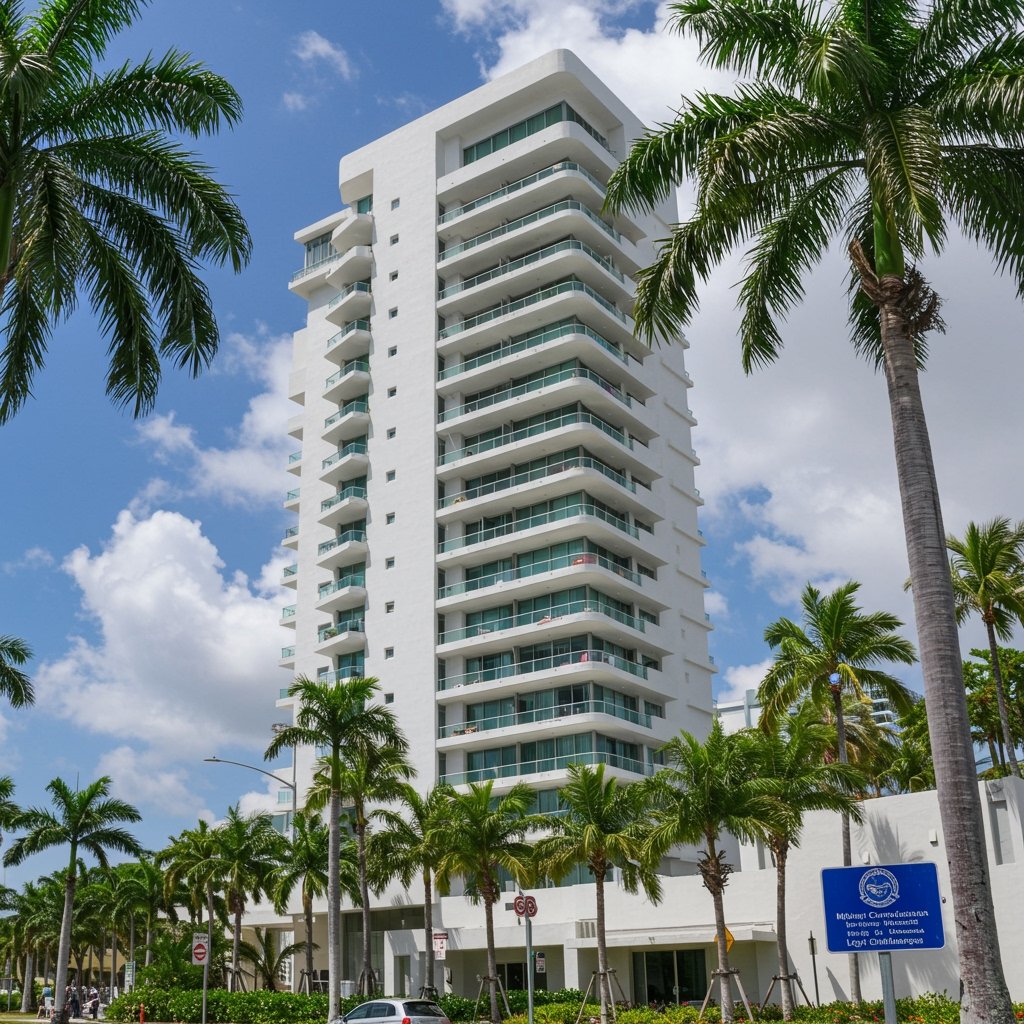Miami City Commission Enacts Sweeping Short-Term Rental Restrictions Amidst Fierce Opposition and Herald Criticism
Miami, FL – In a late-night session concluding Sunday, June 8, the Miami City Commission approved stringent new regulations targeting short-term rentals, a decision poised to significantly alter the landscape for property owners and the city’s tourism sector. The measure, formally designated as Ordinance 25-08, passed by a narrow 3-2 vote, imposing strict limitations on short-term rental operations within numerous residential districts across the city. The swift passage has ignited a firestorm of criticism, most notably from the Miami Herald, whose prominent editorial on Monday, June 9, sharply condemned the ordinance as an egregious overreach.
Ordinance 25-08: Details and Intent
Ordinance 25-08 represents a significant tightening of existing rules surrounding temporary lodging in residential zones. While the specific details of the restrictions within the ordinance are extensive, the core impact is the severe limitation, or in many cases, outright prohibition, of short-term rentals (typically defined as stays of less than 30 days) in areas previously utilized by property owners for this purpose. The stated intent of the ordinance’s proponents was primarily centered on preserving the character of Miami’s residential neighborhoods. They argued that unchecked short-term rental activity leads to quality-of-life issues, including excessive noise, parking congestion, increased traffic, and a reduction in community stability as long-term residents are potentially displaced or impacted by transient populations.
Commissioner [Name A – Assuming one of the three majority voters, not explicitly stated, so I will elaborate on the general pro argument as per summary] articulated the view that the commission had a responsibility to address the concerns of permanent residents who felt their neighborhoods were being transformed into de facto hotel districts. The 3-2 vote underscores the divisive nature of the issue within the commission itself, reflecting the complex balance between property rights, economic activity, and neighborhood preservation that cities across the nation are grappling with.
The Commission’s Divisive Vote
The decision on Sunday, June 8, followed hours of public testimony and commission debate. The final tally of 3-2 highlights the lack of consensus on the path forward for regulating short-term rentals in Miami. Commissioners voting in favor emphasized the need for regulatory control to mitigate negative externalities associated with the growth of platforms like Airbnb and VRBO in residential areas. They presented the ordinance as a necessary step to restore peace and predictability for long-term residents who have reported disturbances and disruptions.
Conversely, the two dissenting commissioners, [Name B and Name C – Assuming the two minority voters, not explicitly stated, so I will elaborate on the general con argument as per summary], aligned with the arguments raised by property owners and industry representatives. Their opposition stemmed largely from concerns about the economic repercussions of the ban and potential legal vulnerabilities. They contended that the ordinance could harm individuals who rely on short-term rentals for supplemental income, as well as damage the broader tourism ecosystem.
Miami Herald Delivers Scathing Editorial Rebuke
Adding significant weight to the opposition, the Miami Herald published a prominent editorial on Monday, June 9, launching a powerful critique of Ordinance 25-08. The editorial board did not mince words, labeling the commission’s action a clear and unacceptable “overreach.” The Herald argued that the stringent regulations represent an unwarranted intrusion into private property rights, asserting that individuals should have the liberty to utilize their homes in ways that do not create undue nuisance.
Beyond the property rights argument, the editorial placed significant emphasis on the potential economic fallout. Miami’s economy is heavily dependent on tourism, and the Herald contended that stifling short-term rentals could inflict substantial damage. The editorial specifically highlighted the anticipated negative impact not just on individual property owners, many of whom are small operators or use rental income to offset mortgage costs, but also on a wide array of ancillary businesses. These include cleaning services, maintenance providers, local restaurants, shops, and transportation services that benefit directly and indirectly from visitors staying in short-term rentals.
Furthermore, the Miami Herald’s editorial raised serious concerns regarding the legality of the ordinance, pointing to potential conflicts with existing state preemption laws. The newspaper suggested that the city’s move might run afoul of Florida statutes designed to limit local governments’ ability to regulate vacation rentals beyond certain parameters already set at the state level.
Economic and Property Rights Concerns Mount
Opponents of Ordinance 25-08, including property owner groups and tourism industry stakeholders, echoed the Miami Herald’s economic warnings. They argue that short-term rentals provide a vital lodging option that caters to diverse tourist needs and budgets, contributing significantly to the local economy. Restricting these options, they contend, could lead to fewer visitors, decreased spending, and a negative ripple effect on businesses that rely on tourist traffic.
Many property owners who utilize short-term rentals view the ordinance as an unjust infringement on their right to derive income from their property. They argue that responsible owners already take steps to mitigate neighborhood impact and that a blanket ban unfairly penalizes them while failing to target the actual sources of disturbances.
Legal Challenges on the Horizon
The legality of Ordinance 25-08 is perhaps the most immediate and critical battleground. Legal experts specializing in property law and municipal regulations anticipate immediate legal challenges to block the ordinance’s implementation. These challenges are expected to center heavily on the principle of state preemption, specifically referencing Florida Statute 509.032. This statute outlines the state’s regulatory framework for public lodging establishments and public food service establishments and has been interpreted in past cases as limiting local governments’ ability to enact outright bans on vacation rentals.
Opponents believe the ordinance exceeds the scope of regulatory authority granted to cities under state law and infringes upon the rights of property owners as protected by the state. The legal challenges will seek injunctive relief to prevent the ordinance from taking effect as scheduled on July 1, 2025, arguing that irreparable harm could be done to property owners and the local economy if it is allowed to proceed.
What Lies Ahead
The passage of Ordinance 25-08 marks a significant moment in Miami’s ongoing debate over short-term rentals. However, the story is far from concluded. The ordinance is slated to become effective on July 1, 2025, but it is widely expected that legal battles will commence long before that date. Property owner associations, industry groups, and potentially individual owners are likely to file lawsuits challenging the ordinance’s validity.
The outcomes of these legal challenges will ultimately determine the fate of short-term rentals in many of Miami’s residential areas. The conflict highlights the tension between the desire to preserve neighborhood character and the economic realities of a major tourist destination, set against the backdrop of evolving property use norms and state regulatory authority. The city, property owners, and the tourism industry now await the unfolding legal drama that will shape the future of lodging in the Magic City.





